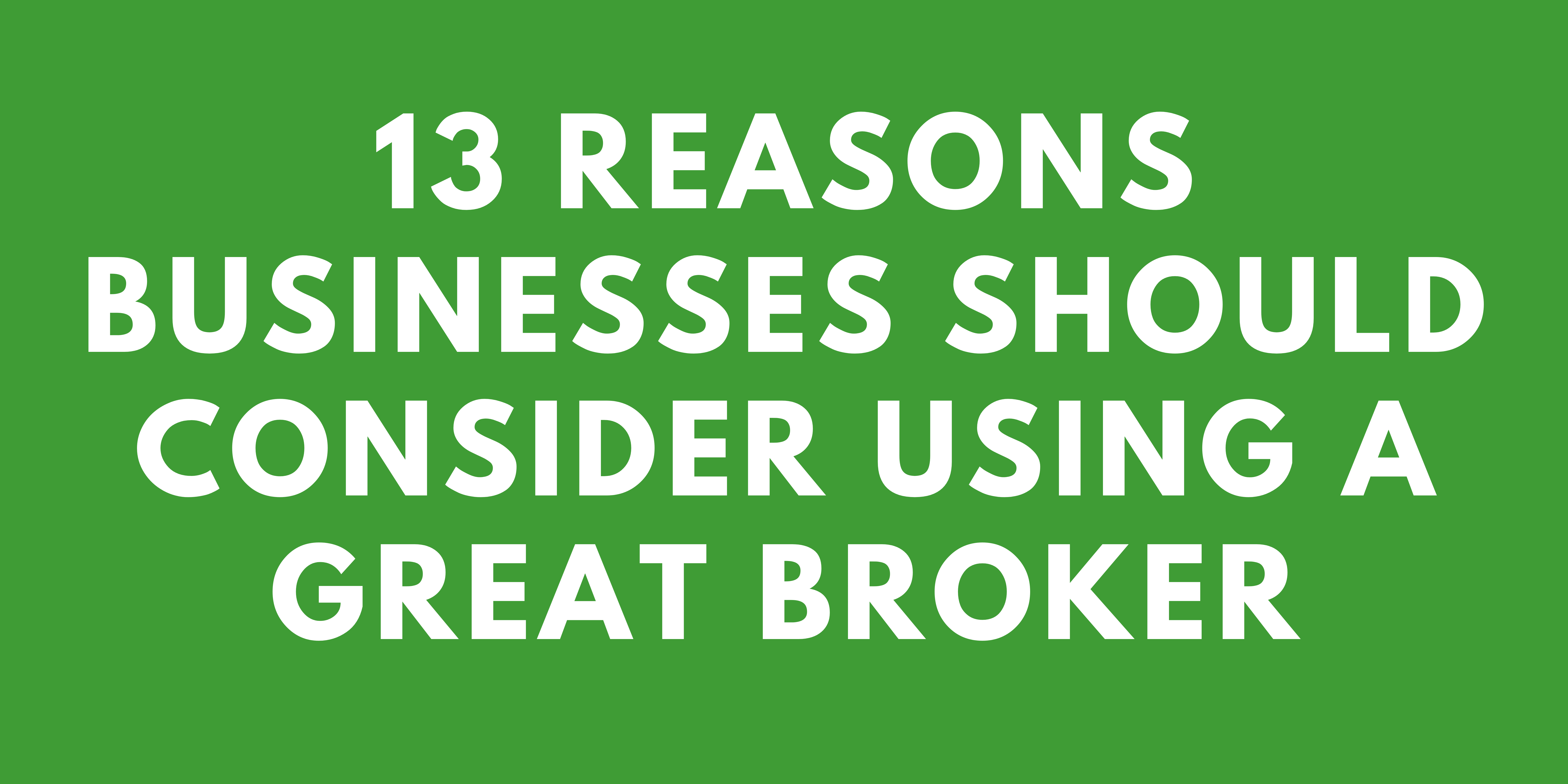Did you know…..
Over 55% of home and investment property loans are completed using a broker (Dec 2019 Qtr per The Advisor) rather than the customer negotiating directly with a financier?
But…..
This percentage slips to around 25% of businesses who use a broker for arranging their business finance (and anecdotally, a lot of this is probably taken up with brokers arranging asset finance for fixed assets purchased under a lease).
There are many reasons business owners don’t use a broker but probably the most common one is
“It’s just easier to use our transactional banker so all our financial needs are with the one financier.”
This sounds like a good reason from a strategic perspective but nothing could be further from the truth in this age of competitiveness and responsiveness – particularly as fin techs (and old techs who are re-inventing themselves as fin techs) are now coming up with some innovative and easy to use solutions. Plus, having ‘all your eggs in the one basket’ is not necessarily a great strategic move – or desirable, if you are having a few curly cashflow months.
So, time for some tough love….
This reason is a good example of what I would call ‘lazy capital management’, where businesses are forsaking efficiency and financial gain for ‘ease and familiarity’. That’s reason #1.
You can argue the above may or may not be true for your company – and that’s fine.
But, let’s pause that discussion for a moment and consider 12 other good reasons for using a broker to determine whether your transactional banker is really offering you the most suitable financial products for you and your business.
1. Your transactional bank (and indeed any lender) is not required to make sure you are getting the most suitable deal for you.
2. Once the deal is done, your chosen lender is not going to advise you of better deals on the market (unless they want you to leave).
3. Your chosen lender is not required to advise you if another lender is more suitable to your needs than they are. Their role is to see if you fit one of their products – not to devise a product which is suitable for you and your business.
4. Whilst your transactional relationship manager can and may be able to provide an introduction within their bank to provide finance for you, the relationship manager you have allotted to you will ‘come and go’ as time goes by. That is just the reality of how banking works. You will need to continually renew your relationship and re-educate your relationship manager over time. Plus, you will have the vagaries of getting good to excellent relationship managers or average to ordinary relationship managers.
5. With a broker, you have a consistency of personnel who you can turn to and discuss your finance needs in the event the relationship manager is not performing as anticipated.
6. Brokers can coordinate the flow of information from you to the lender and from the lender to you so you get a complete picture of what you need to do and when. With the knowledge of finance products and a lender’s requirements, the broker can stay on top of the flow of this information so the deal is done on a timely and efficient basis.
7. A good broker not only understands finance, they understand business and business strategy and how finance needs to work within the business.
8. As someone who is not involved with the company, a broker can have a direct and objective conversation with both you and importantly, the potential lenders. This can be particularly useful when seeking what are the lenders’ ‘must have’ issues Vs the ‘nice to have’ issues.
9. Whilst the business finance team and CEO should be involved in the raising of finance, it is not something which management is expected to have as a core competence as it is not a skill which is being utilized on a regular basis during the year. Not knowing what a lender needs (and why) can be a disadvantage as you might provide too much or too little information and not achieve the result which was possible – and, be none the wiser as to what you have missed out on.
10. A company’s management team is not dealing with finance all the time. Because they do not have deep connections into the various financiers which are available for SMEs, you can sometimes suffer from ‘not knowing what you don’t know’ – particularly with respect to the choice of potential lenders and finance products.
11. Because arranging finance can be time consuming and, let’s face it, distracting from doing all the ‘must do’ day to day tasks, a broker can stay focused on getting the result you need – and when you need it. This allows your finance team to stay focused on their day job so nothing slips through the cracks while their mind is focusing on the vagaries and distractions of arranging finance.
12. Brokers who know business and know finance, can also assist you prepare (or find someone to prepare) your financial forecasts (often called ‘3 way forecasts’ in the finance world – that’s balance sheet, profit and loss and cash flow) and make sure your proposal makes sense. Some businesses have a finance team which can and does do this as part of their day to day responsibilities but if they don’t, knowing a good broker who can assist put this information together – and critique it, can be very handy.
Would you like more information? You can ring us now 1300 989 878 or email us at moreinfoplease@bir.net.au



